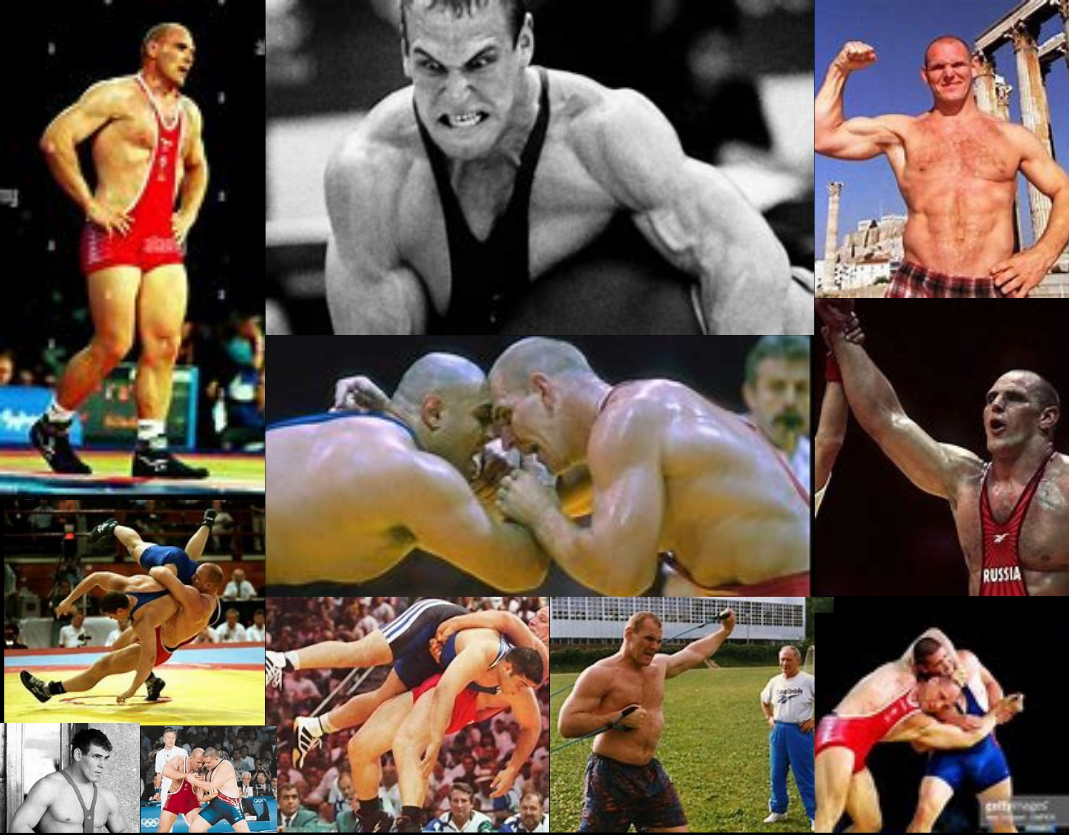
Alexander Karelin is widely considered one of the greatest freestyle wrestlers of all time, earning the nickname “The Experiment” due to his extraordinary athleticism and dominance in the sport. Born on September 19, 1967, in the village of Sukharevo, Russia (then part of the Soviet Union), Karelin began his wrestling career at a young age. His remarkable physical strength and explosive power were evident early on, and by the time he was a teenager, he was already a force to be reckoned with in national competitions.
Karelin stands at 6’4″ and boasts a remarkable combination of size, strength, and agility. His physical attributes made him a fearsome competitor, but it was his technical mastery, tireless work ethic, and exceptional mental toughness that truly set him apart. He dominated the sport of freestyle wrestling for over a decade, particularly in the 130-130kg weight class, where he established a reign of unprecedented success.
Over the course of his career, Karelin won three Olympic gold medals (1988, 1992, and 1996) and a silver medal in 2000, in addition to nine World Championship titles and twelve European Championship golds. His Olympic victories, particularly his 1996 gold medal in Atlanta, were symbolic of his dominance, as he had been unbeaten in international competition for 13 years before suffering his first loss in 2000 at the Sydney Olympics.
One of Karelin’s most iconic moments came during the 1988 Seoul Olympics, when he won the gold medal in dominant fashion. In the final, he defeated American wrestler Rulon Gardner, a match that would become one of the most famous upsets in Olympic wrestling history. This loss to Gardner in the 2000 Sydney Olympics, however, marked the end of Karelin’s unbeaten streak in the sport. Despite this setback, Karelin’s career remains unparalleled in the world of freestyle wrestling, with his near-perfect record remaining a testament to his exceptional skills and dedication.
Known for his unique style of wrestling, Karelin was recognized for his ability to execute powerful throws and suplexes, often lifting opponents in the air before slamming them to the mat with incredible force. His ability to control the action and dictate the pace of the match was unmatched, and he was notorious for his impenetrable defense and unparalleled endurance. His signature move, the “Karelin Lift,” which involved lifting an opponent off the mat and throwing them, became one of the most feared techniques in wrestling.
Beyond his technical prowess, Karelin’s mental fortitude and ability to remain calm under pressure made him a formidable force. His focus and self-discipline were integral to his long-lasting success. Despite retiring from competitive wrestling after the 2000 Olympics, Karelin’s legacy in the sport has remained unmatched. He transitioned into politics and became a member of the Russian State Duma, where he served as a deputy and advocated for sports, physical education, and the welfare of athletes in Russia.
Karelin’s impact on the world of wrestling extends beyond his victories. He inspired countless athletes and left a lasting legacy in the sport. He was not only a physical marvel but a wrestler who approached his craft with meticulous care and dedication. In recognition of his accomplishments, he was awarded numerous accolades, including the title of “Best Athlete of the 20th Century” by the International Federation of Associated Wrestling Styles (FILA) in 2000.
With an illustrious career marked by virtually unparalleled success, Karelin is remembered not just for his athleticism but for his indomitable spirit and his contribution to the growth and popularity of freestyle wrestling globally. His nickname, “The Experiment,” was a fitting tribute to the way he revolutionized the sport, using his body and technique in ways that others could not replicate.